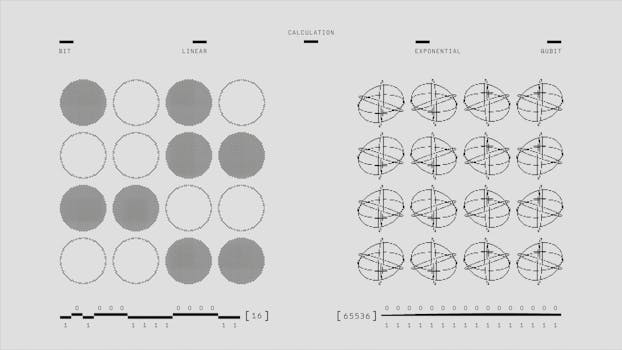
Introduction to Quantum Mechanics

Understanding quantum mechanics is crucial for grasping the fundamental nature of reality. At its core, quantum mechanics describes the behavior of particles at the smallest scales, such as atoms and subatomic particles. This field of physics challenges our classical intuitions and offers insights that can seem counterintuitive, yet they are supported by rigorous experimental evidence.
The Principles of Quantum Mechanics

Quantum mechanics is built on several key principles that differentiate it from classical physics. One of the most important concepts is the wave-particle duality, which suggests that particles, such as electrons, exhibit both wave-like and particle-like properties. This duality leads to phenomena such as interference patterns, which can be observed in experiments like the double-slit experiment.
Another fundamental principle is superposition, which states that particles can exist in multiple states simultaneously until measured. This concept raises intriguing questions about the nature of reality and observation. The act of measurement itself plays a crucial role in determining the state of a quantum system, a phenomenon famously illustrated by Schrödinger’s cat thought experiment.
Quantum Entanglement and Non-Locality

Quantum entanglement is a phenomenon where particles become interconnected in such a way that the state of one particle instantly influences the state of another, regardless of the distance separating them. This non-locality challenges classical notions of causality and locality, suggesting that information can be transmitted instantaneously across vast distances, defying the speed of light limit established by relativity.
Entanglement has profound implications for our understanding of reality, as it implies that the universe is fundamentally interconnected. This interconnectedness could lead to new technologies, such as quantum computing and secure communication systems, which harness the principles of quantum mechanics.
Implications for Reality

The implications of quantum mechanics extend beyond the realm of physics and impact our philosophical understanding of reality. The observer effect, which highlights the role of the observer in determining the state of a quantum system, raises questions about the nature of reality itself. If observation is necessary for a particle to exist in a definite state, what does that mean for the existence of reality independent of observation?
Furthermore, concepts such as parallel universes and the multiverse theory emerge from interpretations of quantum mechanics. These ideas suggest that every possible outcome of a quantum event occurs in separate, branching realities, leading to a rich tapestry of existence beyond our observable universe.
Conclusion

Understanding quantum mechanics not only enhances our comprehension of the physical universe but also challenges our perceptions of reality. The principles of quantum mechanics reveal a complex and interconnected world, where the act of observing influences outcomes, and particles can exist in multiple states simultaneously. As we continue to explore this enigmatic realm, the implications for technology, philosophy, and our understanding of existence will undoubtedly unfold, reshaping our view of reality itself.






